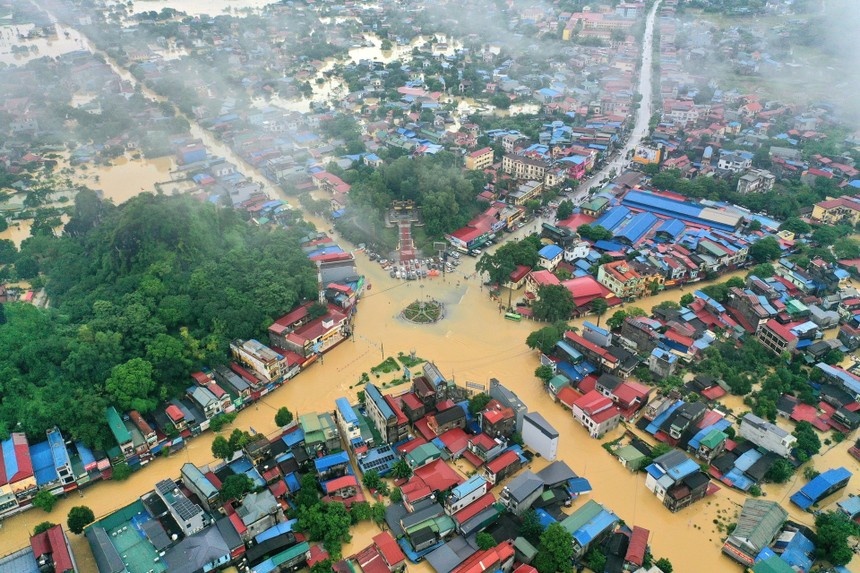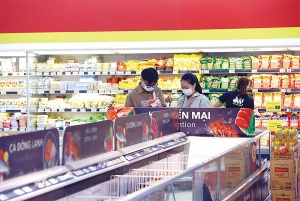 |
The survey offers fresh insights into the evolving preferences, priorities, and purchasing behaviours of Vietnamese consumers. As Vietnam is poised to become the world’s 11th-largest consumer market by 2030, this survey provides a timely snapshot of a market undergoing rapid transformation.
Drawing responses from 517 Vietnamese consumers and over 6,000 participants across 11 Asia-Pacific territories, the survey reveals a population that is increasingly value-conscious, digitally engaged, and health-aware, while also demanding sustainability and trust from the brands they support.
The survey reveals that 48 per cent of Vietnamese consumers view economic instability as the most significant threat over the next 12 months, the highest-ranked concern, slightly above the Asia-Pacific average of 47 per cent. This reflects growing anxiety over macroeconomic volatility, inflation, and affordability pressures.
In response to economic uncertainty, price sensitivity has become the defining trait of Vietnamese consumer behaviour in 2025. 47 per cent of Vietnamese respondents ranked price as the top consideration when buying food, closely mirroring the Asia-Pacific average of 50 per cent. This marks a shift from 2024, when inflation and affordability were already top concerns, but now translate into daily trade-offs between cost, nutrition, and sustainability.
Over one-third of Vietnamese consumers report being financially strained or unable to pay monthly bills. 59 per cent would choose cost-effective food options produced abroad over locally sourced alternatives. 41 per cent are willing to pay a premium for locally produced foods, indicating a nuanced balance between costs and values.
This trend presents both a challenge and an opportunity for businesses. Companies must rethink their value propositions, offering affordable products without compromising on health, convenience, or sustainability.
While price dominates, the 2025 survey also highlights several other emerging consumer priorities. For health and food quality, 74 per cent of Vietnamese consumers are extremely concerned about ultra-processed foods and pesticides, surpassing the Asia-Pacific average of 68 per cent, while 35 per cent actively avoid ultra-processed foods.
Additionally, more than 80 per cent use healthcare apps or wearables, with many embracing AI-powered solutions for meal planning and fitness. The willingness to embrace AI highlights a demand for personalised dietary solutions and offers opportunities to integrate convenience, shopping, health, and technology. Companies combining these with AI can guide consumers in meal planning. This signals a growing demand for tech-enabled wellness and clean-label products, even as price remains a constraint.
Regarding sustainability and climate awareness, 96 per cent of Vietnamese consumers express concern about climate change, the highest in the region. 69 per cent are willing to pay more for food that supports the environment. 70 per cent aim to reduce food waste by buying only what they need. Consumers are increasingly value-led, seeking brands that align with their environmental and ethical concerns.
In terms of convenience and digital integration, 54 per cent of consumers buy prepared foods at least once per week. Platforms like Grab and ShopeeFood are reshaping grocery delivery and meal consumption. A hybrid shopping model, in-store and online is now the dominant approach across retail segments. This reflects the rise of the digital native shopper, demanding speed, flexibility, and personalisation.
Nguyen Luong Hien, consumer lead partner at PwC Vietnam, emphasised the urgency for businesses to adapt, saying, “Business leaders in Vietnam must act decisively to grow in the changing consumer market. Our report highlights the need to build trust and meet consumer needs, specifically in the currently uncertain global and local context. Key steps include offering value beyond price, tailoring strategies to shopper missions, and supporting ethical choices fit for aspiring Vietnamese consumers. Transparency and consistency are vital for trust. Genuine sustainability with third-party certifications is also crucial.”
Adding a regional perspective, Rakesh Mani, Asia-Pacific Consumer Markets Leader at PwC, commented, “Asia-Pacific is the most diverse and fastest-growing consumer market in the world. As AI, climate change, and shifting geopolitics reshape industries, brands must go beyond transactions to build trust and relevance. The winners will be those who embrace personalisation, simplicity, and ethical innovation. In Vietnam, this means understanding the nuanced aspirations of consumers, from affordability and health to digital convenience and sustainability, and responding with bold, responsible strategies.”
 |
Consumption rise uncertain until general recovery appears
Vietnamese consumers continue to be mindful of their spending in 2024 in anticipation of the challenging outlook in the short and medium term. |
 |
Vietnamese consumers careful amid economic volatility
Vietnamese consumers are becoming increasingly cautious with their spending amid economic uncertainties, shifting their focus towards essential items while cutting back on non-essential purchases. |
 |
Key growth drivers evaluated in fast-moving consumer goods
The intensification competition facing fast-moving consumer goods manufacturers and brands in Vietnam brings a multifaceted mix of challenges and opportunities, driven by several key factors. |




